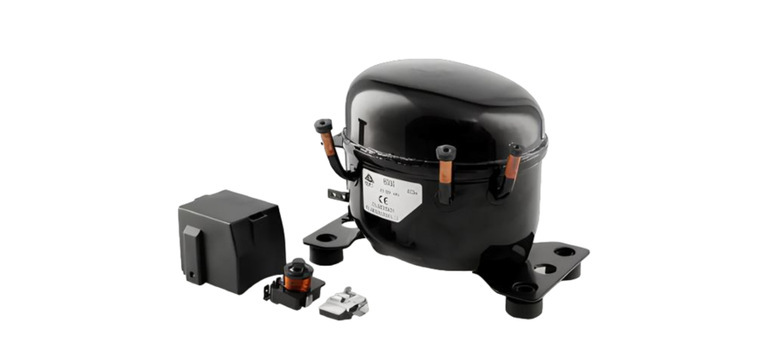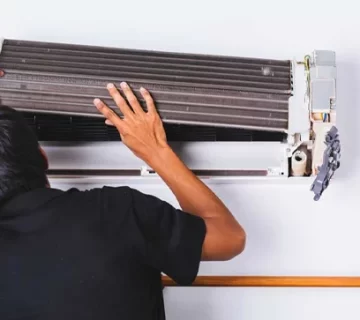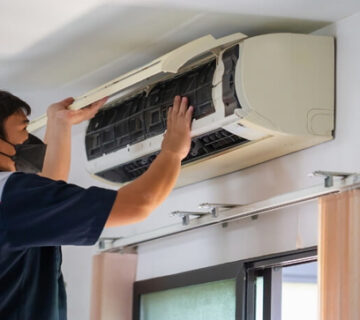The refrigerant compressor is an essential component of air conditioning and refrigeration systems, and maintaining effective cooling requires it operating at its maximum effectiveness. It’s important to identify warning indicators for your refrigerant compressor early on in order to avoid expensive replacements and failures of the system. Possible problems include an accelerating decrease in cooling efficiency, strange noises like shaking or crashing, continuous operation without cycle, a hot compressor, and tripping circuit breakers.
Refrigerant leaks, serious freeze build up, variable temperatures, high energy bills, and a non-starting system are further signs of trouble that need to be attended to right away by a trained professional. By keeping an eye out for these indicators, you can prevent compressor issues before they become serious and extend the life of your cooling system.
The refrigerant compressor is the primary component of any air conditioning or refrigeration system, and it is essential to preserving the ideal temperature in a room. This mechanical part facilitates the heat exchange process that allows cooling by pressurising and cycling the refrigerant. The proper operation of the refrigerant compressor is essential to the overall system’s efficiency.
This important component needs to be checked right away if it shows any symptoms of trouble, such as odd noises, insufficient cooling, or continuous running. Timely intervention is essential to guarantee the smooth operation of the refrigerant compressor, preventing additional damage and guaranteeing the entire effectiveness of the cooling system. This includes professional examination, testing, and necessary repairs. Frequent maintenance procedures also help the refrigerant compressor stay longer and be more reliable, which guarantees that it will continue to play a part in maintaining safe and comfortable surroundings.
Here are some signs that your refrigerant compressor may need attention
1. Lack of Cooling
A continuous reduction in cooling effectiveness could suggest that the compressor isn’t compressing the refrigerant sufficiently. This might be the result of problems with the compressor motor, low refrigerant levels, or components that are worn out.
2. Unusual Noises
Various noises can point to different issues. A shaking sound, on the other hand, may refer to lost parts or refrigerant pipes, and a crashing sound might indicate a loose or broken element inside the compressor.
3. Constant Running
The proper temperature should be maintained by continuously turning on and off compressors. Continuously operating compressors can experience trouble maintaining the temperature at the desired level for a variety of reasons, including problems with the compressor control system, temperature, or refrigerant charges.
4. Hot Compressor
An extremely heated compressor may be a sign of insufficient cooling, which may be brought on by problems like low refrigerant levels, blocked extractor coils, or an incorrectly functioning condenser fan. If overheating is not treated right away, compressor damage could happen.
5. Tripped Circuit Breaker
If the compressor’s circuit breaker breaks repeatedly, there may be an overload or an electrical problem. A failing compressor motor, a short circuit, or an incorrectly configured capacitors could be the cause of this.
6. Leaking Refrigerant
Leaks of refrigerant present an important risk to the environment in addition to reducing cooling efficiency. Examine the area surrounding the compressor, refrigerant lines, or other parts for any sticky patches or stains, and take quick action to plug any leaks.
7. High Energy Bills
A compressor that is having trouble maintaining the proper temperature may be using more energy. This may be the result of things like insufficient insulation, refrigerant leakage, or a compressor that is having to work harder than usual because of mechanical problems.
8. Inconsistent Temperature
Variations in the cooling space’s temperature may be a sign that a compressor isn’t keeping up a steady compression cycle. Problems with the compressor itself, the refrigerant charge, or the temperature control could be the source of this.
9. Frost Build up
Overly heavy freezing on the coils of the evaporator could indicate if the compressor is having trouble circulating the refrigerant around in the system. This could be caused by problems such as low refrigerant levels, a broken compressor, or an improper freezing system.
10. System Not Starting
When the cooling system is turned on, if the compressor does not start, there could be an electrical problem. This could be the result of a faulty capacitor, a motor, or a compressor failure. The compressor motor and electrical parts need to be inspected by an expert.
Conclusion:
Maintaining the durability and efficiency of your air conditioning or refrigeration system depends critically on being aware of the warning indications of possible problems with your refrigerant compressor. Quickly attending to these indicators by hiring a professional inspector and making the required repairs will stop further damage, system breakdowns, and expensive replacements.
In addition to ensuring your cooling system operates consistently, routine maintenance and immediate attention to compressor-related issues can help with overall comfort, cost savings, and energy efficiency. You can increase the service life of your compressor and the cooling system as a whole, which will improve the reliability and effectiveness of your residential or commercial refrigeration system. Recognise these warning indicators and take appropriate action.



